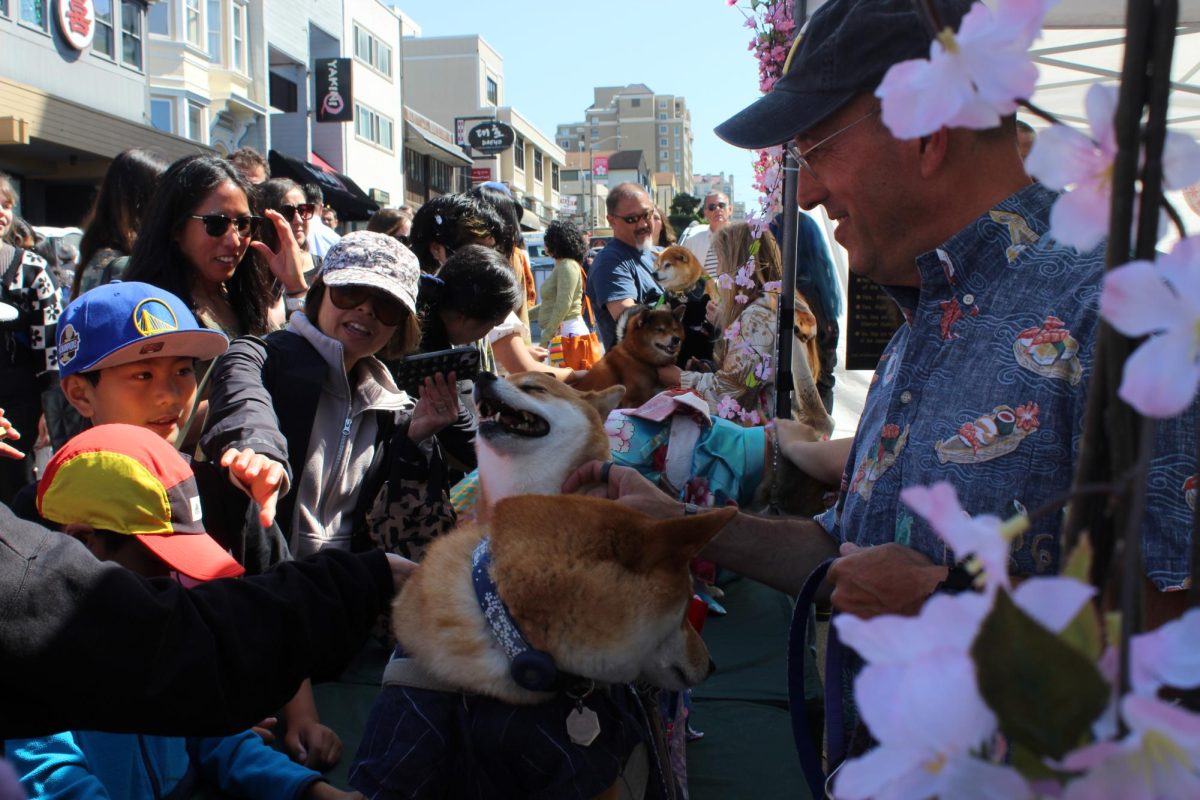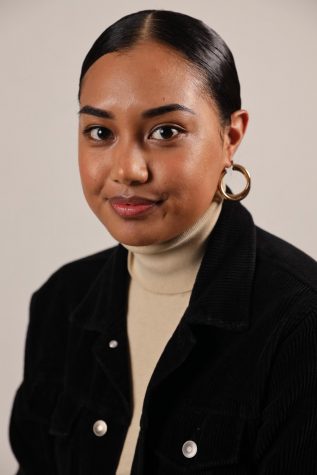In Spring 2016, SF State administration proposed budget cuts to the College of Ethnic Studies, resulting in a student-led hunger strike. During this time, many Pacific Islander students, including organizations such as the Pacific Islander’s Club (PIC), advocated for proper representation within the Ethnic Studies department.
Levalasi Ane Loi-On, SF State’s former student success coordinator at Asian American & Pacific Islander student services, was one of the leading influences that helped establish the Pacific Islands and Oceania Studies program on campus at SF State.
“There were Pacific Islander students that were advocating for the program,” Loi-On said. “And when I came in, as a grad student, I helped to push and advocate administrators to support the establishment of it. One of the courses that we were able to push for was a course on Health and Wellness Among Pacific Islanders.”
Loi-On said the course not only teaches about Pacific Islander culture but also dives into mental health and other health disparity issues that exist in Pacific Islander communities. At the beginning of the pandemic, Loi-On said many Pacific Islander students were left without in-person events and resources that made them feel more connected with other students on campus.
Due to the pandemic, mental health resources and programs have adapted an online format to still support the Pacific Islander community. As a way to heal and offer support for their community, many Pacific Islanders have started to speak out and advocate for mental health online.
However, language barriers and younger perspectives that conflict with older generations and cultural stigmas on mental health have also affected an open dialogue on the matter, according to Reina Kapiolani Pahulu.
Pahulu grew up feeling there weren’t enough spaces for herself and other Pasifika women to be vulnerable and heal from their traumas outside of a church setting. However, Pahulu did not share the same faith as others did in a Christian setting when it came to being herself.
“For me, that wasn’t a safe space being trans and queer,” Pahulu said. “And it worked out the way that it did, which is fine. I have no grudges against anyone. But I’m like, ‘Okay, so what happens to the girls who aren’t attending church regularly and finding that support system?’”
Pahulu said that discussing mental health and personal experiences in a native language is a new concept for many Pacific Islanders. Those lived realities were what pushed Pahulu into creating her own support system outside of church. In 2019, Pahulu began a safe and inclusive space called Manava Circle for Pasifika women to come together as a group and focus on shared experiences and healing through writing.
“We’ve built a community,” said Lai’i Lupeananu, who has been using her platform on social media to reach a larger audience on certain issues including mental health. “Those meetings were super empowering, and very powerful because it’s just a room full of Pasifika women — sharing our experiences and we would write about it.”
The circle also discussed personal experiences with topics that are considered taboo within Pacific Islander cultures such as mental health, sexual abuse and toxic masculinity. However, Pahulu believes that Pacific Islanders are slowly starting to have those heavy conversations with their families and friends.
It wasn’t until her 20s that Titilua Ikenasio, a journalism student and podcast host, started having conversations with her dad about her own struggles with mental health. She described the whole experience as “a start” but still believes that there are other factors that prevent other Pacific Islanders the chance to heal from their trauma.
Gender roles and toxic masculinity were heavily normalized as a child, and with that, Ikenasio believes that it has prevented many Pasifika women from feeling more than what they have been conditioned into learning–which is “meant to serve.” According to a 2018 National Inquiry Report of Family Violence in Samoa, gender stereotypes are heavily encouraged at a young age within Samoa. The report showed the common harsh realities of domestic violence and rape and the negative effects it has on the emotional and mental state of survivors.
“If we’re just expected to serve all our lives, it doesn’t leave room for us to grow as individuals to find out who we are as people,” said Ikenasio. “It doesn’t help that we don’t give our women enough room to be who they are, or to grow into people outside of their cultures or outside of being just a Samoan woman. Because we are more than just Tongan women, we are so multifaceted.”
Ikenasio said that she thinks a lot of Pacific Islanders struggle to see mental health as a problem and rather see it as something that someone can “overcome.” According to a study in 2019, the survey reported “high levels of depression, anxiety and alcohol use” yet “low levels of help-seeking” within Pacific Islander communities. Another report from the Suicide Prevention Resource Center showed that “in Asian or Pacific Islander populations, the suicide death rate for men is more than double the rate for women.“
Another advocate for mental health within Pacific Islander communities is Rae Pito, who started @polysandmentalhealth on Instagram. The account functions as a mental health service that provides services for those seeking professional therapy. Pito said she first started the account in 2019 after she started experiencing depression and anxiety.
“I feel like we just need an outlet to be heard and to be seen,” said Pito. “And that’s a big reason why we also share people’s stories because a lot of times family members didn’t even know you experienced that.”
Rae says that the Instagram account’s purpose is to not only help people find therapy, but also give people a chance to share their stories on a public platform. Cultural stigmas and religious beliefs prevent many Pacific Islanders from seeking professional help and thus cycles of trauma and abuse are kept in place. Although the latest estimated population total of Native Hawaiians and Pacific Islanders in the U.S. is 1.6 million, “not much is known about their mental health due to the disproportionate underuse of mental health care services,” according to the American Medical Student Association.
“The biggest part of me when I was going through that experience was like, I didn’t want to talk to people about it,” said Rae. “Therapy helped me to identify the emotions that I was feeling and put a name to the things that I was experiencing.”








